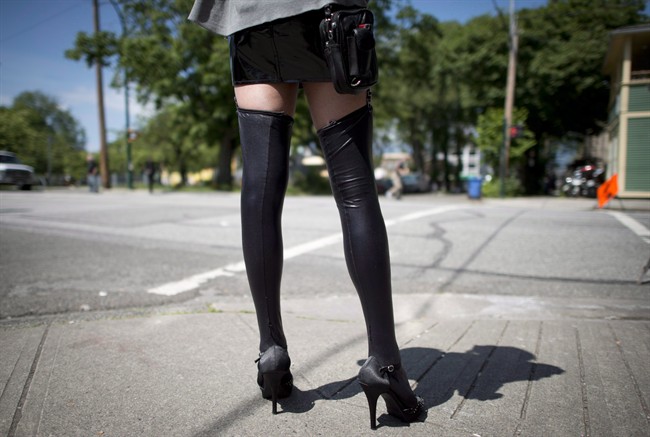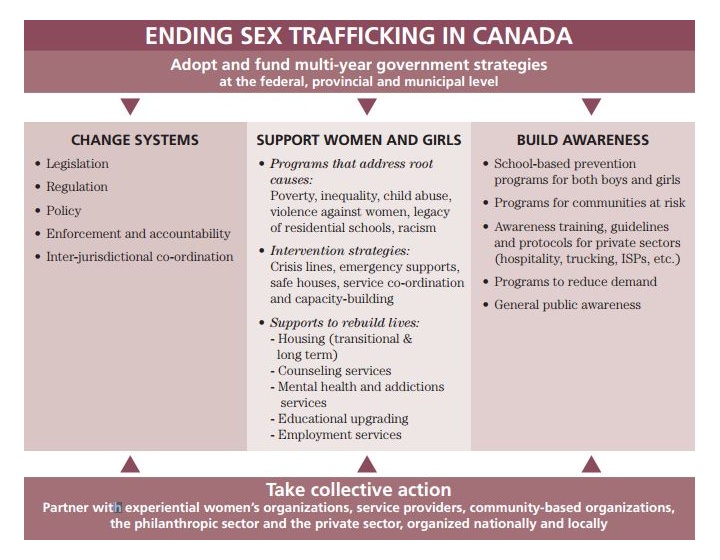When it comes to the sex trade, the terms sexual exploitation, sex work and human trafficking are often interchanged to mean one thing: exchanging sex for money.

However, according to Chez Stella, a sex worker rights groups based in Montreal, the confusion created by this can often harm sex workers.
READ MORE: Why is the Canadian Grand Prix a hub for human trafficking?
“Sexual exploitation is a term that has no real definition and is increasingly used as a synonym for ‘sex work,'” said Sandra Wesley, director general of Chez Stella.
“Advocating for the criminalization of consensual sex work between adults no longer has broad public support.”
Despite the Concertation des luttes contre l’exploitation sexuelle (CLES) insisting that women are more targeted during the F1, Wesley says the organization has found there is no link that the Canadian Grand Prix is “rife with human trafficking.”
“Meanwhile, sex workers are being harmed by the increased repression, surveillance and hatred this time of year,” she told Global News.
Sex work, she says, is a job where a person is paid in exchange for sexual services that can take place in various settings (the street, hotels, parlours, at a client’s home or hotel, at the sex worker’s home or work space).
READ MORE: Montreal to target human trafficking during Grand Prix weekend
“Sex work is not inherently exploitative or violent, but sex workers remain vulnerable to exploitation and violence because our work is criminalized and stigmatized,” explained Wesley.
“Sex workers are diverse, in terms of our identities and backgrounds, as well as in terms of our experiences in the sex industry, which, like most other industries, can be positive, negative and every nuance in between.”

Wesley explains that, contrary to popular opinion, the sex trade has various business models, such as fully independent, agencies/parlours with independent contractors, co-operatives, small businesses with a small number of sex workers or large businesses with many workers, including drivers, receptionists, webmasters.
Human trafficking requires three main components, Wesley says:
- The victim was coerced or deceived.
- The victim is forced to work in a situation akin to slavery, servitude or forced labour (not paid for services).
- The victim is moved from her/his home to another location (sequestration, captivity or across borders).
According to the Canadian Women’s Foundation, the majority of people who fall victim to trafficking are: female, poor, have a history of violence and neglect, a history of child sex abuse and a low level of education, among many other factors.
READ MORE: 32 people charged with 78 offences in Canada-wide human trafficking investigation
Wesley explained industries with weak labour protection laws and little police co-operation are ideal for trafficking, such as agriculture, construction, domestic work, the clothing industry, restaurant work and the sex industry.
READ MORE: Thousands of runaway girls in Quebec vulnerable to trafficking
“Police repression against the sex industry does not address this issue and actually creates conditions that encourage trafficking,” she told Global News.
“The best way to fight trafficking in any industry is to make sure it is safe for victims and witnesses to come forward.”
How do we protect sex workers in Canada?
The government of Canada has created the National Action Plan to Combat Human Trafficking to prevent human trafficking, identify victims, protect the most vulnerable and prosecute perpetrators.
Recently, Montreal Mayor Denis Coderre also announced he is asking the Conseil des Montréalaises to look into issues of human trafficking during the F1 weekend in Montreal.
READ MORE: Montreal police change policy on prostitution
However, Wesley argues human rights organizations have long insisted on a complete decriminalization of sex work and more co-operation from police.
“We have enough information to state, without a doubt, that criminal laws against sex work are harmful. They are harmful to all sex workers, including those who are victims of violence, exploitation or even trafficking,” she told Global News.
READ MORE: Ashton Kutcher testifies before U.S. Senate committee on human trafficking
The Canadian Women’s Foundation has also called for policy adoption at all levels of government, as well as for the creation of support groups and prevention education for young children.




Comments